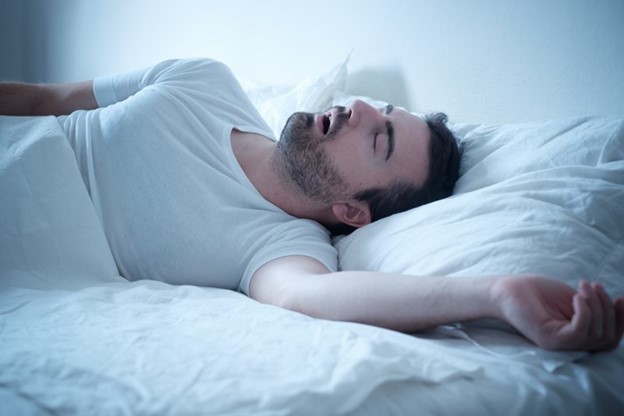
Sleep apnea is a sleep condition that interrupts one’s breathing during sleep. This leads to disturbed sleep patterns as well as potential health risks, such as heart disease and memory impairment. While seeking professional treatment is optimal, making simple lifestyle adjustments can alleviate symptoms. Continue reading to learn about six dentist-recommended at-home remedies that may help improve your sleep quality.
1.) Maintain a Healthy Weight
Obesity in the upper body can lead to narrowed nasal passages, potentially causing the airways to collapse as muscles relax during sleep. Studies indicate that weight loss can reduce the necessity for upper airway surgery or long-term CPAP therapy, and in certain instances, completely alleviate sleep apnea.
2.) Try Yoga
Sleep apnea is linked to reduced blood oxygen levels. Yoga, with its focus on breathing techniques, enhances respiratory strength and promotes oxygen flow. By improving respiration, it can reduce sleep interruptions associated with sleep apnea.
3.) Change Your Sleep Position
Changing your sleeping position, although seemingly minor, plays a significant role. A 2006 study revealed that over half of adult sleep apnea cases are affected by sleep position. Researchers observed that sleep apnea symptoms worsen when adults sleep on their back, while sleeping on the side can lead to improvement.
4.) Use a Humidifier
Humidifiers can alleviate various irritating symptoms, such as congestion and inflamed nasal passages caused by dry air. When positioned near your bed, they facilitate airway opening and promote clearer breathing during sleep.
5.) Avoid Alcohol & Smoking
Both alcohol and smoking lead to inflammation in the airways, exacerbating snoring. Moreover, alcohol relaxes throat muscles, increasing the likelihood of their collapse and obstructing normal breathing during sleep. Mitigating sleep apnea is just one of the numerous health benefits you can reap by quitting smoking and reducing alcohol consumption.
6.) Talk to Your Dentist About an Oral Appliance
Oral appliances for sleep apnea differ from CPAP machines. These small dental devices resemble a mouthguard and work by repositioning your jaw and tongue to comfortably keep your airways open during the night. While there are many over-the-counter oral appliances available, opting for a custom-fit device from your dentist ensures personalized treatment for improved sleep quality.
Although these home remedies for sleep apnea can assist in symptom management, they cannot replace a professional consultation with your doctor or dentist. However, adopting these straightforward habits and lifestyle adjustments might contribute to restoring a restful night’s sleep.
About the Practice
Sleep Better Baytown provides a variety of treatments for patients in Baytown and the surrounding communities, ensuring their smiles receive proper care. If you’re dealing with sleep apnea, their experts will delve into the issue and identify the most effective solution to ensure you get restful sleep without any problems. Additionally, they offer guidance on at-home treatment options. To schedule an appointment with Sleep Better Baytown or learn more about managing sleep apnea, call their office at (281) 422-8249 or visit their website.
